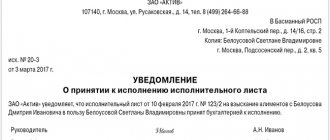My story is determined by life circumstances - I have an elderly, lonely relative left in my care, this is my aunt, my father’s sister. She was a widow, she had no children, my mother and I were her closest relatives. My aunt was entitled to a free social worker - such workers come twice a week, bring food (we left money for them weekly), take out the trash, check whether everything is fine with their ward’s health - they don’t examine, but look at the appearance, the answers. We had my aunt’s social worker’s mobile phone, we were in touch for many years, and when my aunt had a stroke, it was the social worker who called the doctor the fastest - it happened on the day she arrived.
Once a week I visited my aunt, alone or with my mother. We washed the apartment, refrigerator, bathroom and toilet, brought simple universal food (we cooked it at home and brought huge packages with us - mashed potatoes, steamed cutlets) so that my aunt would have less contact with the gas stove and heat it more in the microwave. We washed my aunt, I cut her nails and hair, we took things to the laundry and changed them into new clothes, I made the bed. This went on for the last ten years - my aunt became ill in health and did not go outside.
Accordingly, monthly expenses for an aunt were equivalent to monthly expenses for a full-fledged family member - food, household chemicals, clothing, utility bills, etc., this could be from 30,000 to 50,000 rubles per month. We kept my aunt’s pension, and I paid for her care all these years from my salary.
About a year before her departure, we began to notice changes in her psyche - memory lapses, she sometimes called us by names that were not ours, abruptly jumped from one topic to another: dementia was developing. We began to think about bringing my aunt to us - under constant care and control.
My aunt lived in an area almost entirely consisting of Khrushchev-era apartment buildings, where elderly residents lived, mostly old men and women. We constantly heard about cases of fraud, when people come to them to lure money for “magical” household or medical devices, we understood that the apartment market is fragile and one fine day a person will come to my aunt who will “discuss” the transfer with her rights to an apartment.
To protect her and her home legally, we chose the option of a lifetime annuity agreement. It involves transferring to you the right to property (here - real estate, a two-room apartment in a five-story building) after the death of the person to whom you provide rent for life.
The aunt agreed, we talked to her and explained how this decision would allow us to record what we were already doing, protect her and give her guarantees for the future.
We immediately involved a notary and a lawyer in our matter, calling them to our home. It is already difficult to say how much it cost at that time, but these were the prices in the market and the range of services included drawing up an agreement, visiting a relative, certifying signatures and support later, issuing all the necessary documents.
The contract spelled out all the points that I had already fulfilled for many years - the amount of 30,000 was indicated - this is the monthly minimum that should have been fulfilled for care (under the contract you collect checks), some contracts stipulate the conditions of burial and taking care of it after the person leaves. In fact, the amount spent on care was more, and this was in the order of things - because we were talking about a family member.
The issue with the subsequent funeral in our case was resolved, because for my aunt there was a place in the cemetery where her mother (my grandmother) was buried.
The aunt passed away shortly after the death of her brother and dad, and the timely conclusion of the agreement made it possible to avoid worries that could have been associated with receiving an inheritance.
I can say that despite the fact that my situation seems to be quite obvious and natural, there is something in it that is important for everyone in the field of life annuity to consider:
1. It's a responsibility
, first of all, for human health, for his mental and emotional state. Special books are not needed, but a healthy and stable psyche is definitely needed. You will be caring for an old man with a rigid psyche and possibly deteriorating health. You must be emotionally mature and have incredible emotional intelligence. You must be above the clouds of reason of the ward, not be offended by his whims and bad character. You must show tremendous empathy, love and patience and maintain them throughout your journey. These are the most important things.
2. You must have time to care for your ward.
This may be a daily concern or a whole day on the weekend - but completely from morning to evening, and this is many months and weeks over many years. This type of work does not have vacations or time off. And it's physically and emotionally difficult. It is difficult to wash the light but clumsy body of an old man or woman and to clean the apartment; you must not be squeamish, friendly and ready for the role of a nurse.
3. You should know that there are many more advantages to this care.
than just future material gain. You improve another person's quality of life, making them healthier and happier.
4. You must be a mature person
to decide to do this when the circumstances are like this. It is important to understand that by doing so you will protect your ward, and not go to the extreme of “what people around will say.” To do this, however, as I wrote earlier, you need to be an emotional adult.
What is a life annuity
Life annuity
- this is a type of transaction in which the apartment owner (rent recipient) undertakes to transfer his housing in exchange for regular payments.
If the homeowner requires additional services—for example, care, grocery shopping, or help with housework—then this type of annuity is called a lifelong dependent annuity
.
The term of such an agreement is until the end of the life of the apartment owner. And if the annuity agreement was concluded with several recipients - for example, spouses - then until the end of the life of the last recipient.
Property can be transferred free of charge
(that is, exclusively for rent payments) or
for a fee
- a one-time payment at the time of concluding the contract, which will be supplemented with rental payments in the future, notes the managing partner of the Moscow law office "Shcheglov and Partners", lawyer Yulia Lyalutskaya.
The amount of rental payments is established by the contract. If the apartment is transferred free of charge, then payments cannot be lower than the subsistence level, which is established in the region where the rent recipient lives. If the cost of living increases, payments are indexed.
According to Lyalutskaya, the transfer of ownership of real estate occurs immediately after the conclusion of a rent agreement. That is, the rent payer will legally become the owner of the apartment. But the property will be encumbered - it cannot be sold or rented out without the consent of the rent recipient, who will also retain the right to live in the apartment.
You need to keep in mind: after the conclusion of the contract, the rent payer - as the owner of the property - will need to pay utility bills and taxes, despite the fact that he will not actually live in the apartment.
Arbitrage practice
It should be noted that the popularity of annuity contracts is declining due to frequent litigation. Judicial practice shows that courts try to protect, first of all, the rights of the annuitant, especially when a life annuity is in effect. This is quite justified, because this is usually an elderly or sick person. The heirs often present arguments such as poor care leading to premature death. It is very difficult to challenge the failure to take into account the rights of minor heirs. Certificates of incapacity are sometimes used.
However, one should not think that rent payers always lose in court . If they thought in advance about possible initiators of claims (including children and spouses) and took care to confirm the good attitude of neighbors towards the dependent, then they have a fairly good chance of winning the case.
An annuity agreement, like any agreement, can be challenged by the parties who entered into it or their heirs. To do this, there must be convincing evidence of the illegality of the transaction or improper fulfillment of contractual obligations. All rights to challenge the contract are regulated by the Civil Procedure Code of the Russian Federation, and controversial issues are considered in court on the basis of the Civil Procedure Code of the Russian Federation.
How to draw up a contract correctly
According to lawyer Susana Kirakosyan, a life annuity agreement is subject to mandatory notarization. And the transfer of ownership of the apartment - state registration. If the apartment is transferred free of charge, this will be a gift agreement, and if an additional payment is made for the apartment, then it will be a purchase and sale agreement.
Before concluding an agreement, the rent payer should prepare, advises assistant lawyer of the Union of Lawyers of the Moscow Arbat Bar Association, Alexander Ushakov.
- Meet the annuity recipient.
The lawyer recommends studying the composition of the recipient’s family and his potential heirs. To do this, you can get archival and expanded extracts from the house register (this can be done at the MFC, housing cooperative or HOA), see who and when was registered in the rent recipient’s apartment and where they were discharged. “This document will give an idea of the composition of the family, but only on the condition that they were registered in the apartment of the rent recipient,” notes Ushakov. In addition, the lawyer recommends looking at photo albums and talking with the potential annuitant and his neighbors.
- Check the psycho-emotional state of the future annuity recipient.
It is best if the recipient undergoes a medical and psychological examination at an accredited healthcare institution, PND and ND at the place of residence, says Alexander Ushakov. An additional guarantee is that the annuitant must have a valid driver's license.
- Provide the notary with a certificate when concluding a contract
from healthcare institutions about the lack of registration with the PND and ND. “It is advisable to register only in a notary’s office with an entry in the register of notarial actions,” the lawyer advises.
There are no standard annuity contracts; they are always drawn up individually. The contract must indicate the total cost of housing, the amount of the monthly payment and the timing of its payment. If a lifelong maintenance agreement with dependents is drawn up, then you need to list all the responsibilities of the annuity payer - and do this in as much detail as possible. If the rent recipient wants to retain the right to live in the apartment, then this condition must be explicitly stated in the contract, notes Susana Kirakosyan.
“When drawing up an annuity agreement, it is important to clearly formulate the responsibilities of the annuity payer, specifying what exactly he must perform to the annuity recipient: including the amount of one-time and monthly payments to the annuity recipient, the procedure and amount of indexation of the amounts of periodic payments. If there is a condition for the supply of food and medicine, it is necessary to indicate the volume and range, quality or name of specific goods, and indicate the frequency of services,” lists Alexander Ushakov.
Or you can just buy an apartment with a mortgage
View rates in banks
Registration cost
How much does it cost to sign a contract for an apartment for an elderly person? An annuity agreement with lifelong maintenance must be concluded with a notary. Therefore, this legal procedure is paid. The notary cannot independently set the amount - there is a specific rate for the fee. Most often, the rate is 0.5% of the property value.
According to the Civil Code of the Russian Federation, the amount of a notary's remuneration for certifying a transaction is limited. The duty cannot be less than 300 rubles, but should not exceed 20 thousand rubles. Therefore, the exact amount of the fee depends on the price of the property. The more expensive the apartments in the city or the house in the village, the greater the notary's fee will be.
The average area of apartments in Russia at the end of 2021 is 49 square meters. We calculate the average duty price based on the price per square meter in the regions of the Russian Federation. The duty amount is calculated as 0.5% of the average cost of an apartment in the region or city. In cases where 0.5% of the cost is more than 20 thousand rubles, the maximum amount of duty is set at 20,000 rubles:
| Region | Price per square meter | Duty amount |
| Moscow | 179.3 thousand rubles | 20 000 |
| Moscow region | 75.225 thousand rubles | 18 430 |
| Sochi | 118.3 thousand rubles | 20 000 |
| Saint Petersburg | 118.1 thousand rubles | 20 000 |
| Vladivostok | 96.3 thousand rubles | 20 000 |
| Sevastopol | 86.6 thousand rubles | 20 000 |
| Khabarovsk | 86 thousand rubles | 20 000 |
| Ekaterinburg | 71.2 thousand rubles | 17 450 |
| Kazan | 69.6 thousand rubles | 17 000 |
| Nizhny Novgorod | 65.17 thousand rubles | 16 000 |
| Novorossiysk | 63.1 thousand rubles | 15 600 |
| Ufa | 60.6 thousand rubles | 14 847 |
| Arkhangelsk | 59.5 thousand rubles | 14 577 |
| Tyumen | 59.5 thousand rubles | 14 557 |
| Rostov-on-Don | 59.3 thousand rubles | 14 528 |
| Syktyvkar | 58.7 thousand rubles | 14 381 |
| Irkutsk | 58.17 thousand rubles | 14 251 |
| Samara | 58 thousand rubles | 14 210 |
| Tula | 56.8 thousand rubles | 13 916 |
| Nizhnevartovsk | 56.16 thousand rubles | 13 759 |
| Kaliningrad | 56 thousand rubles | 13 720 |
| Permian | 55.65 thousand rubles | 13 634 |
| Belgorod | 55 thousand rubles | 13 475 |
| Novosibirsk | 54.8 thousand rubles | 13 426 |
What to watch out for
1. The transaction may be declared invalid.
“The most common case of fraud with an annuity agreement is its conclusion in favor of a citizen who died at the time of its conclusion. Most often, such situations are possible when the rent agreement is concluded through intermediaries,” says Yulia Lyalutskaya. In the future, such an agreement may be declared invalid, but returning the money transferred to the “intermediaries” is problematic.
Here are a few more reasons why a deal may be invalidated:
- the rent recipient did not have the right to dispose of the property;
- the identity of the annuity recipient prevents the conclusion of the contract: he is incompetent, does not realize that he is managing property, or is mistaken about the nature of the transaction;
- the form of the agreement does not meet the requirements of the law.
To reduce these risks, it is necessary to very carefully and thoroughly examine the real estate itself, the contract, and also check the identity of the rent recipient, the lawyer advises.
To do this, you need to obtain an extract from the Unified State Register (Rosreestr), and also check information about all court cases involving the owner using the electronic judicial database, adds Susana Kirakosyan.
2. The heirs can challenge the deal.
Real estate that is transferred under an annuity agreement is removed from the inheritance estate - that is, in any case, the heirs will not be able to receive it. But after the opening of the inheritance, the relatives of the annuity recipient may challenge the agreement.
“The most popular argument in such cases is that the grandfather (or grandmother) could not direct his actions and did not realize that he was managing real estate,” explains Yulia Lyalutskaya. Indeed, it is impossible to completely eliminate such a risk when concluding an annuity contract. Even if you collect the maximum amount of evidence and documents that confirm the real will of the parties and the absence of coercion and delusion, you still cannot prohibit the heirs from filing a claim. And a legal dispute means 6–8 months of litigation only in the court of first instance, the lawyer warns.
3. The annuitant may change his mind and try to terminate the contract.
“Such situations usually arise under pressure from heirs, relatives, or simply concerned neighbors who see a criminal component in everything,” says Yulia Lyalutskaya.
“The parties must act in good faith, but, alas, in practice, many district courts, especially in the center of large cities where real estate is expensive, quite often consider disputes between the recipient and the rent payer with demands for termination on far-fetched grounds. As a result, a conscientious rent payer is left with losses without the expected real estate,” confirms Alexander Ushakov.
If you draw up a contract correctly and fulfill your obligations properly, then terminating it without reason will be problematic. But you still have to prove your good faith to the court. “If the annuity agreement provides for regular cash payments, then evidence of the fulfillment of the annuity payer’s obligations will be receipts for receipt of cash or bank statements confirming regular money transfers,” notes Yulia Lyalutskaya.
Pitfalls, risks and benefits
Compared to other property transfer agreements, a life annuity has its pros and cons. Most often, senior citizens choose between it, donation and will.
Positive points include:
- a guarantee of monthly receipt of money, as opposed to a gift or bequest;
- it is possible to terminate the contract if the payer does not fulfill the maintenance obligations - this is not the case with a gift;
- notarization guarantees a high degree of security of the transaction;
- the property is registered immediately, which distinguishes it favorably from a will.
The risk lies in the personality of the party to the contract. The recipient may turn out to be incompetent, which will lead to the relatives challenging the contract, and the payer may turn out to be a fraudster, which will bring the old man loss of property.
To protect yourself, you need to carefully check the party to the lifetime contract. A notary will help increase the security of the transaction.
Tips: how to protect yourself and your money
- Choose reliable intermediaries if you need them.
In order not to run into scammers, you should very carefully study the documents and real reviews of the intermediary agency - it is better to choose such agencies on the advice of people you know. “If you decide to enter into an agreement with a professional company, then give preference to a state-owned one. Payments will be smaller, but you will be reliably protected from fraud,” advises Susana Kirakosyan. It’s even safer to find an annuity recipient you know on your own. Such a person could be, for example, a lonely elderly neighbor or your relative.
- Contact a lawyer to assist with the transaction.
“When preparing documents for a transaction, in addition to the requirements of civil law, a lawyer also takes into account the legal positions of the courts, similar disputes and “cases” that determine the appearance of certain conditions in the document,” explains Yulia Lyalutskaya. A realtor, according to the expert, cannot replace professional legal expertise: his goal is to ensure a meeting between the seller and the buyer and bring them to a transaction.
- Execute the contract to the letter.
To do this, you need to describe all your obligations in the contract in as much detail as possible. If it says that the rent payment must be transferred through a bank, transfer through the bank so that there is confirmation from a third independent person about the payment made in favor of the rent recipient, says Alexander Ushakov.
- Collect evidence of all your actions.
Keep evidence of everything that you perform under the contract: bank statements about the transfer of funds, receipts from stores, payment confirmations, notes the lawyer.
- Be friends with the rent recipient's neighbors.
In the event of a dispute, their testimony in court as a witness: that you regularly visited, brought food and medicine, looked after and maintained the annuity recipient’s home - will be the right tool for protecting your integrity, advises Alexander Ushakov.





